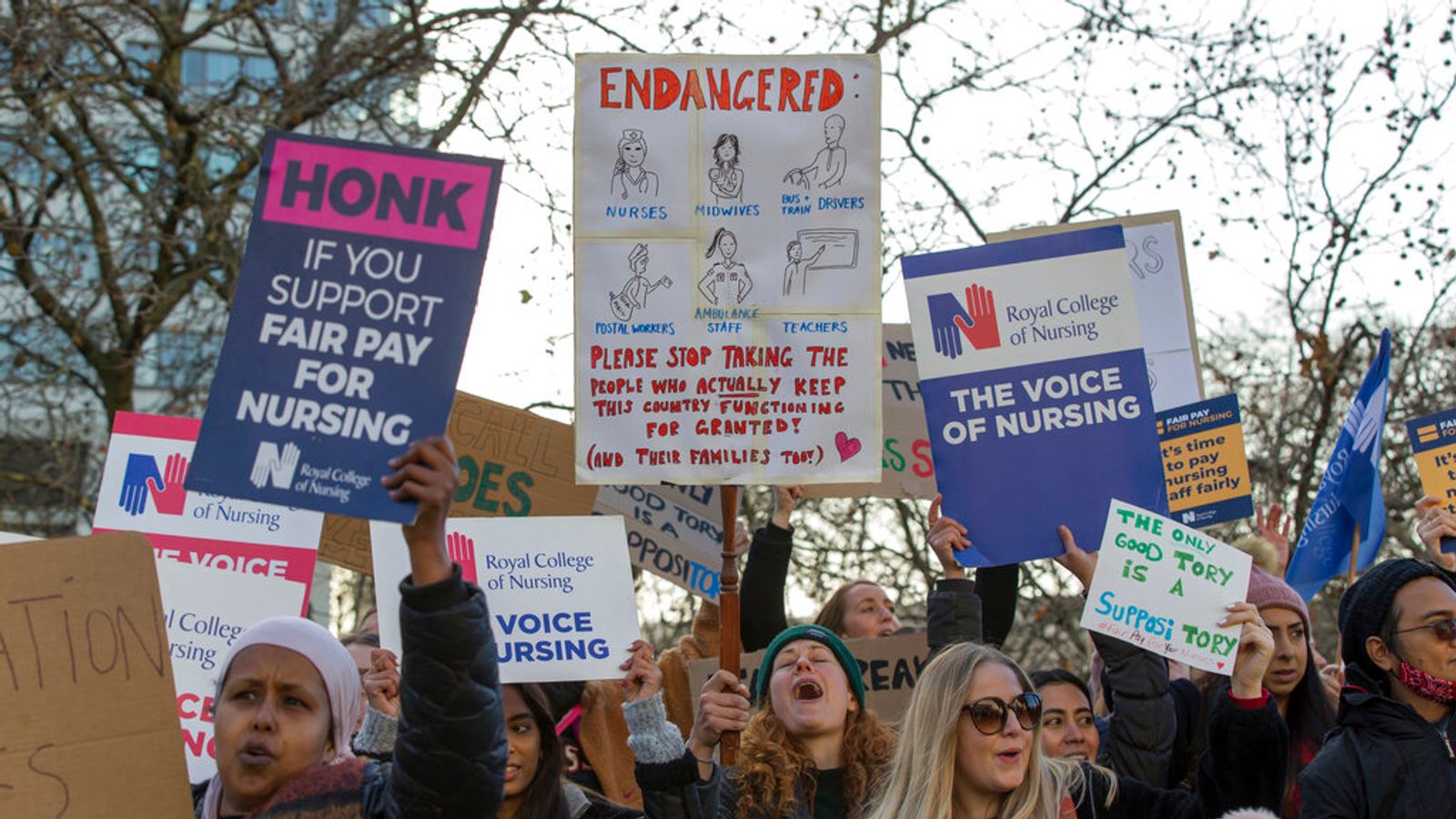The government is bringing forward new strike laws to “maintain a basic function and deliver minimum safety levels” in the public sector during industrial action, the business department has confirmed.
In a statement, it said the government would “always protect the ability to strike”, but added: “It must be balanced with the public’s right to life and livelihoods”.
The legislation will be put to the Commons “in the coming weeks” and set minimum service levels for fire, ambulance and rail services when the sectors decide to take action.
The government will consult on what those service levels should be, but said it would take into account that “disruption to blue light services puts lives at immediate risk”.
There had been reports that other sectors would also be covered by the new laws, including health, education, nuclear power, other transport services and border security.
But the department said it “expects to continue to reach voluntary agreements” with those unions and “would only look to consult on minimum safety levels should these voluntary positions not be agreed”.
Speaking to reporters, business secretary Grant Shapps said he would “rather we never have to go down this this route” and hoped that unions and employers could “get together and do sensible things in order to guarantee a minimum safety or service level in each different area”.
Rishi Sunak says public sector pay rises will fuel inflation. Economists say they won’t
Rishi Sunak must ‘step up to the plate’ to break deadlock and stop using pay review bodies as a ‘human shield’, TUC boss says
Train strikes: Network Rail says it is ‘on the right path’ towards securing deal to stop walkouts
But he said recent ambulance strikes left the country with a “postcode lottery” of services, which was “unacceptable”, and the government would now have the power to impose service levels to stop that happening.
“There has to be a minimum safety level that people can expect even on strike days, particularly in areas like health care, making sure that an ambulance can turn up, for example,” said Mr Shapps. “That’s very patchwork at the moment.”
The business secretary hit back at criticism from unions who say such laws will impact the rights of its members, saying other modern European economies already have minimum safety levels.
“If, for example, you’ve got somebody who has a heart attack, maybe a stroke, the idea that there may not be an ambulance coming because there’s a strike on I think is unacceptable,” added Mr Shapps.
“We’re not proposing to go the full hog. Other countries, parts of America, Canada or Australia, they have legislation which bans those blue lights entirely from going on strike. We’re not proposing that.
“I think it’s very reasonable what we’re suggesting, but I think the time has come and it brings us into line with other European nations.”






















